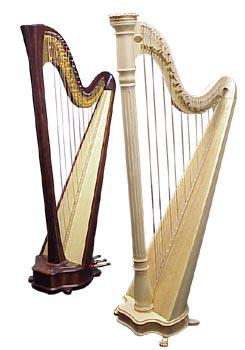| Brief History of Baroque Music |  |  |  |
| Music History |
| Written by Tel Asiado |
 The word 'baroque' is used to describe a particular musical style, a term originally borrowed from the style of architecture popular between 1600 and 1750. The buildings were ornate or elaborately decorated, and often flamboyant. The music of the time can be seen in this way too, that is, elaborate and heavily ornamented. The word 'baroque' is used to describe a particular musical style, a term originally borrowed from the style of architecture popular between 1600 and 1750. The buildings were ornate or elaborately decorated, and often flamboyant. The music of the time can be seen in this way too, that is, elaborate and heavily ornamented. Famous examples of this Baroque music are compositions of Johann Sebastian Bach, George Frideric Handel, and Henry Purcell, among others. The 17th century music is usually divided into two: the early Baroque period, from 1600 to 1680, and the late Baroque period, 1680 to 1750. Early Baroque Period (1600-1680)The early 17th century saw the rise of Baroque 'monody' as differentiated from 'polyphony' of the Renaissance. In monody, the melody is given to one instrument or voice, while the basso continuo (or continuing bass), usually consisting of a keyboard and bass melody instrument, acts as the accompaniment. Late Baroque Period (1680-1750) The key instrumental form of the late Baroque period was the concerto grosso. It reflected the contrast between two groups of instruments. The two groups either alternated with one another or play together. Famous for this music were JS Bach and Arcangelo Corelli. Baroque Period Employers - Royalty or ChurchMost of the music was written by composers as ordered by their employers, almost always, by the Church dignitaries or by royalty. Henry Purcell was composer to the King's Band and George Frederic Handel was appointed composer to the Chapel Royal. This meant that composers were expected to write music for various official occasions and not just to composer when they felt like it.Major ComposersThe major composers of this period were Johann Sebastian Bach and George Frideric Handel in Germany (later, England); Antonio Vivaldi in Venice, Italy; and Henry Purcell in England. Operas and OratoriosThe greatest legacy by the late Baroque period was the creation of operas and oratorios, considered greatest and most magnificent is Handel's Messiah, and J.S. Bach's St Matthew Passion. The first operas were heard in this period and later became a popular form of public entertainment. Operas are dramas sung and acted to orchestral accompaniment, produced with scenery and lighting on stage, and the costumes of the characters. Recommended Baroque Instrumental Music:Johann Sebastian Bach's Toccata in D minor for pipe organGeorge Frideric Handel's Music for the Royal FireworksAntonio Vivaldi's Four SeasonsJohann Pachelbel's Canon in D majorGeorg Philipp Telemann's passions Henry Purcell's Sonata No.9 in F |
No comments:
Post a Comment